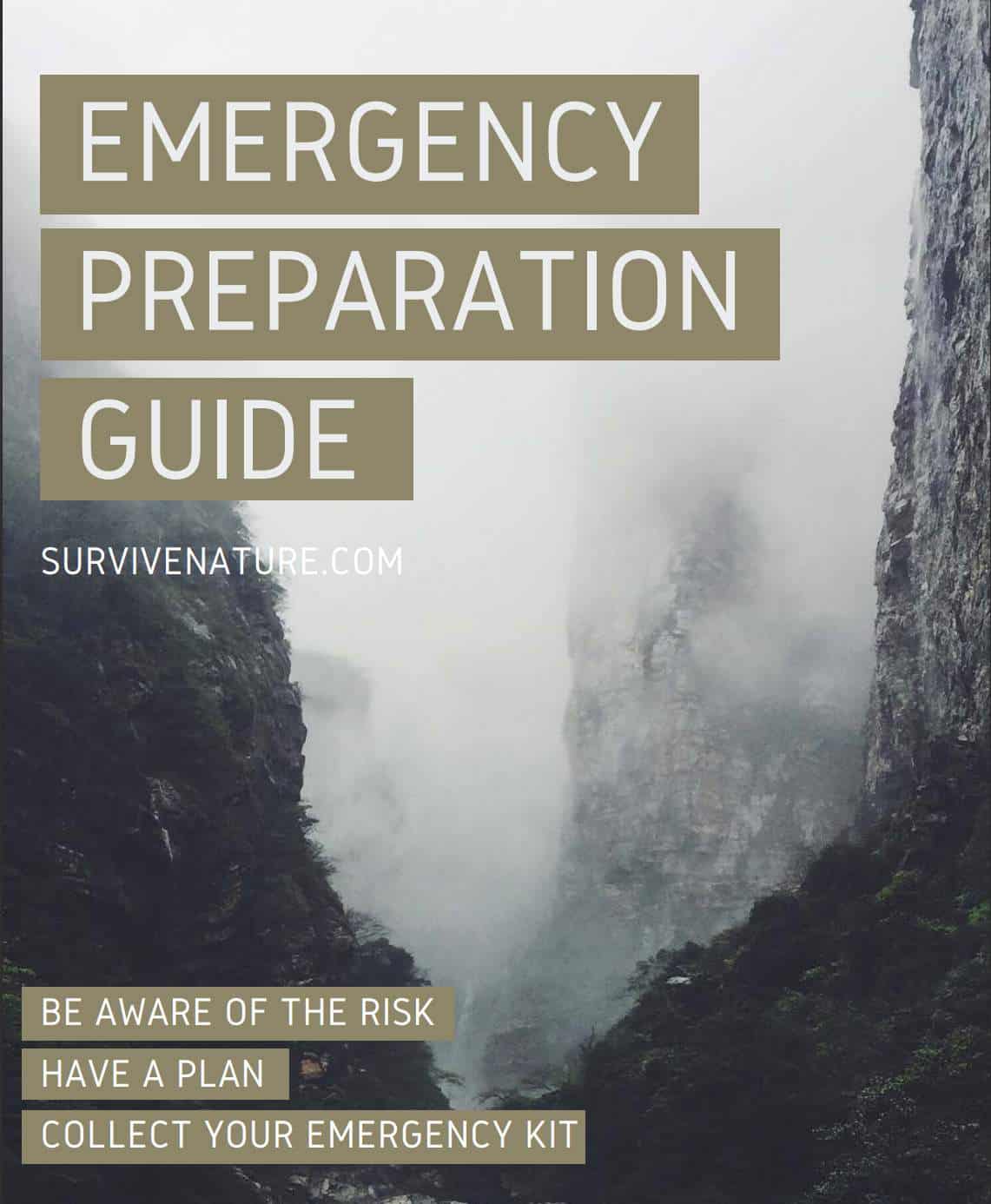Storing water is important for households all around the world. Without clean water, chances of surviving in an emergency decrease, so you need to have at least the minimum water amount stored at home. There should always be enough water for drinking, cooking, and hygiene, especially if there are sick people in your household.
Calculating your personal water storage is relatively easy. Using a water storage calculator, you can slowly work towards the perfect amount of clear water for your family. However, while most people can easily regulate their food storage, the conditions for storing water are only sometimes as evident.
If you want to prepare a water storage that will serve you in an emergency, read this article and learn all the tips on how to store, refill, and save your water supply.
Good Water Supply
Calculating minimum water storage can be tricky because there are always many circumstances that you need to take into account. In general, emergency and health specialists recommend having a gallon of water per person per day. Therefore, for a month of water storage, you will need at least 30 gallons of water.
Note that you would need to collect and store more water if you live in places with hot or humid climates. Moreover, you always have to keep in mind that first aid emergencies can require additional water usage. You can always be careful when it comes to preparing a water supply for you and your family. Remember, without efficient water storage, one’s chances of life might drastically decrease, especially in the long term.
Preparing Water Storage for Different Purposes
One gallon of water per person per day is a lot at first sight. However, this water storage will be used not only for drinking but for other purposes as well. Considering any personal needs of your family can also be helpful, especially if the average water use in your household is higher than usual.
In your water storage calculator, you should include water for the following uses:
- Drinking;
- Cooking food;
- Personal hygiene.
For drinking purposes, you need to store at least 15 gallons of water per month. That is, you will need approximately half a gallon to drink each day. Water in our body is used for a variety of physiological processes. In our everyday lives, we do not even notice how much water is spent on breathing, digestion of food, and sweating.
With around eight gallons of water, a person would need to wash up or sanitize the body and space in case of a health emergency. Maintaining proper hygiene and washing your hands is especially important to prevent any infections or diseases.
Finally, you will surely need water storage for cooking food. For instance, freeze-dried food that is often stored for emergencies needs water for preparation. Moreover, you will most likely cook using a boiling method, as it is one of the safest water consumption options. For cooking, at least eight gallons of monthly water storage is needed.
Thus, when working on your water storage calculator, think about how much water you will need not only for drinking but for washing and cooking as well. Remember that the amount of water you store can be different from the minimum requirements.
Optimal Water Storage Solutions
Once you have found out what the necessary amount of clean water per person in your household is, it is time to think about the ways to store and sanitize this water. Usually, a container that does not contain any BPA is chosen, as BPA-contaminated water can be dangerous for a person. These plastic jugs are also good for long-term storage.
When you collect rainwater for storage, make sure that the containers are placed in a cool and shady place at room temperature. Containers should be waterproof and air-tight so that water stays in its initial clear for longer.
To make sure that your drinking water is good to store further, you should check it for algae growth. Rotate the water storage if it has changed in color or obtained some film. If you use purified water, you will have to rotate it less frequently. However, other types of water might need refilling every once in a while.
How to Sanitize Water
Water sanitation skills can allow you to store water for longer and use it for many purposes, from washing and cooking to getting enough drinking water. One of the easiest ways of at-home sanitation is using household bleach to clear cloudy water. Using 16 drops of non-scented bleach per gallon of water, you can filter out available cloudy water. For clear water sources, eight drops of bleach per gallon of water is enough.
The majority of preppers have their water filters ready at all times. They vary in price and levels of filtration. However, such devices usually work better for water storage rather than providing an immediate source of clean water.
Another effective way of clearing out the water in your storage container is to use purification tablets. They cover all sorts of water purification, from getting your water ready to store in jugs to filtering muddy water for immediate use.
Take these tips and get your water storage ready according to all the calculations. Water can save lives, so it is better to have gallons of clean water ready in case of any emergency.
How to Use Our Emergency Water Storage Calculator
Using this calculator is crucial to prepare for emergency situations where normal water supply is disrupted. It helps you ensure that you have enough stored water to cover all your essential needs, such as drinking, cooking, and hygiene, thereby helping to keep you and your family safe and healthy during crises.
We have developed a really precise calculator to estimate emergency water storage so that in any situation, you will have a chance to be as prepared as possible, keeping in mind all the necessary metrics.
Take a look at the step-by-step instruction on how to use our emergency water storage calculator to reach maximum efficiency:
- Input the number of people in your household.
- Include the number of pets, if any.
- Enter the number of special needs individuals.
- Enter the number of days for which you anticipate needing an emergency water supply.
- Choose the appropriate climate condition.
- If there are other water needs like cooking and cleaning, factor them in.
- Input your available storage space in cubic feet.
- Input the number of water storage containers you have.
- Enter the number of reliable water sources available to you.
- Click “Calculate” to get the estimated total amount of water to store.
This calculator provides an estimate of how much water to store for emergencies. You need to enter your household size, anticipated usage duration, climate, and details about your storage facilities. It considers water needs for drinking, cooking, cleaning, and sanitation. Stay safe and get prepared at the topmost level for any emergency whatsoever!
Frequently Asked Questions — FAQ
How much water should I store for an emergency?
A gallon of water per person per day is considered the norm. Thirty gallons per month can be used for drinking, food preparation, and hygiene. Calculating average water usage for your family can help to estimate how much water you will need in an emergency.
How long will 500 gallons of water last?
You need at least 30 gallons of water per person for a month. According to this, such water storage should be enough for at least 16 months if you spend a gallon per day. Taking into account unexpected water usage is also important for the preparation.
How much water do you need to survive a month?
An average person needs a minimum of a gallon of water per day to survive. Therefore, it is better to have at least 30 gallons for month-long emergencies. However, the storage amount might increase if you live in places with hot weather or if you are physically active throughout the day.


